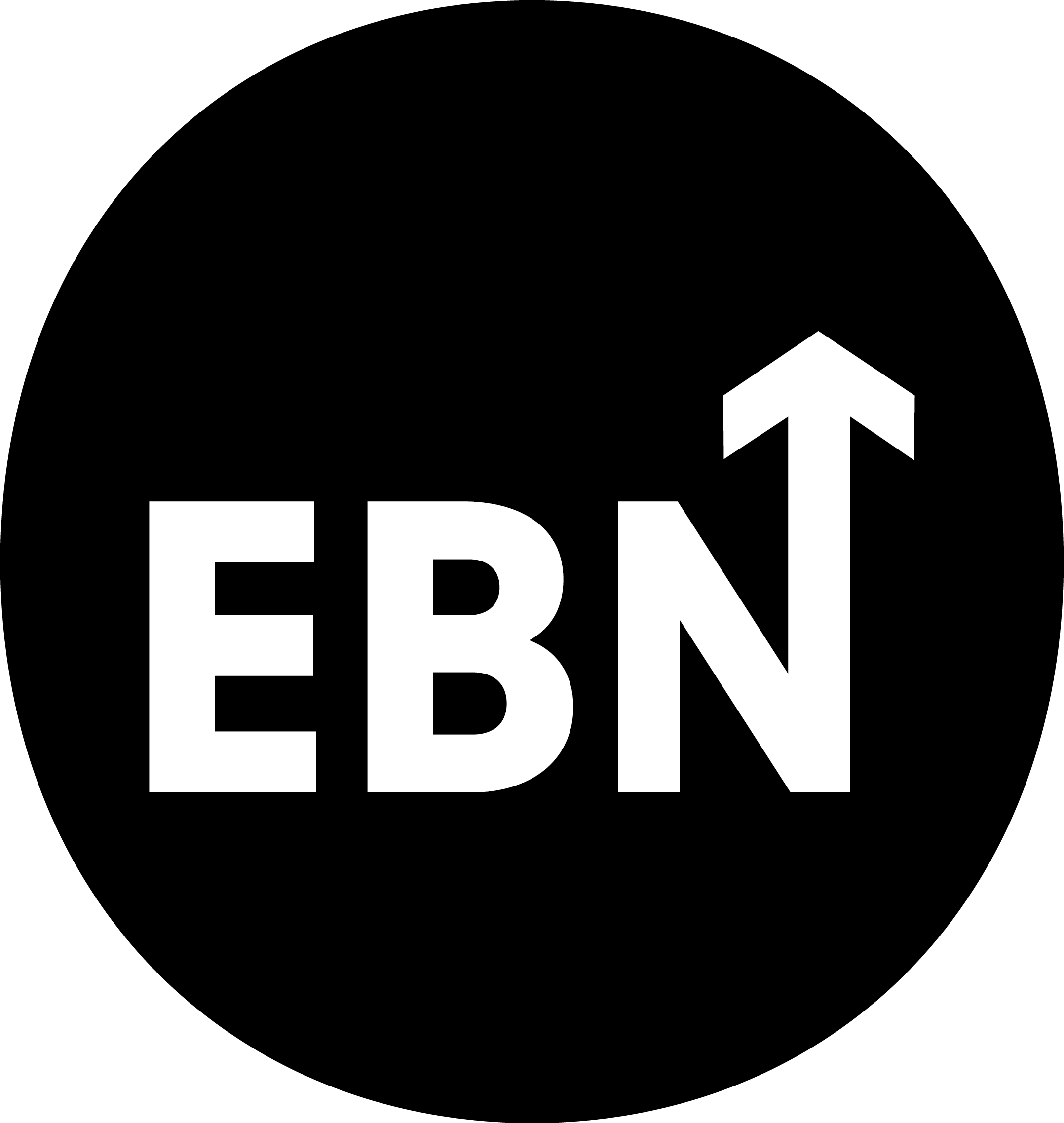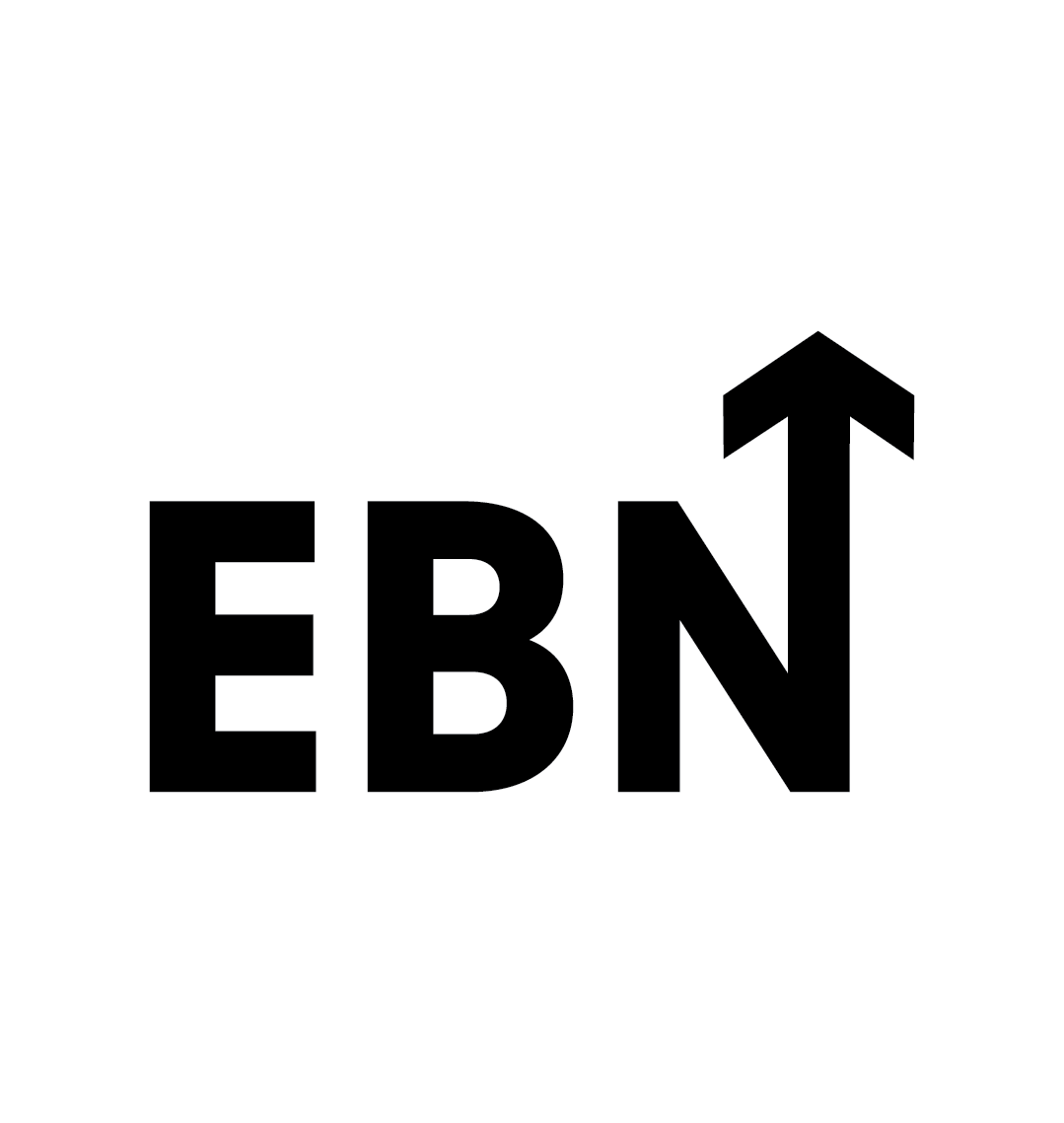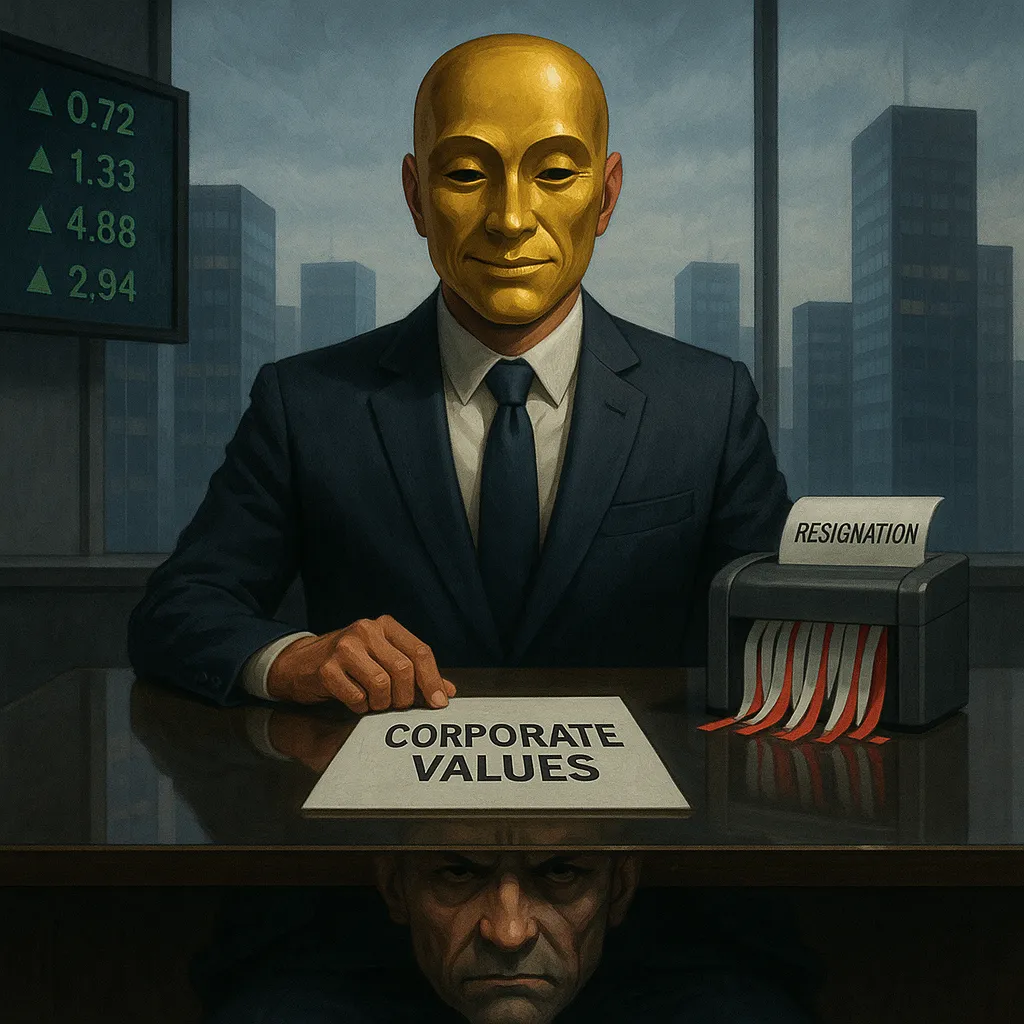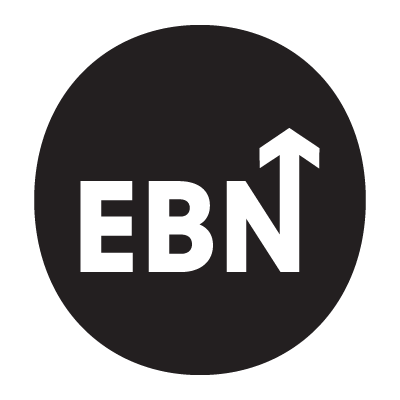The Great Corporate Values Mirage
Ah, corporate values, the noble, unshakable principles that define a company's ethos. Or, at least, that’s the fairy tale we’re fed. In reality, corporate values are as steadfast as a politician’s campaign promises - abandoned the moment they become inconvenient. Whether it’s DEI commitments vanishing overnight, sustainability pledges morphing into greenwashed PR stunts, or companies swapping their "purpose-driven" mission for whatever boosts quarterly earnings, one thing is clear: the only real corporate value (in the majority of cases) is profit.
When Values Are Just Marketing Slogans
Values, in their truest sense, should come from something deeper - higher, even. They’re meant to be principles you stand by through thick and thin, not trendy accessories swapped out like Apple Watch bands. Yet, in boardrooms across the world, "values" are just another line item on the HR checklist, a mirage that disappears the moment shareholder pressure intensifies.
Consider the recent mass exodus from DEI commitments. Companies that once proudly declared their undying dedication to diversity, equity, and inclusion are now quietly rolling back programs and removing DEI language from their websites. Case in point: Lyft, which gutted its DEI team in 2023, and Meta, which scaled back its diversity initiatives while simultaneously laying off thousands. Then there’s Snap, which reportedly cut its entire DEI team while still espousing a commitment to an “inclusive workplace.” Funny how that works.
Sustainability? The same story. Remember when Amazon pledged to reach net-zero carbon emissions by 2040? That was before it quietly ditched its Climate Pledge Friendly label for thousands of products. Meanwhile, Unilever, the self-proclaimed champion of purpose-driven business, conveniently dropped its “sustainability focus” when new leadership deemed it less financially viable. Values? Nope, just feel good PR fodder. More on Unilever's u-turn HERE.
Momentum isn’t progress. Especially when you always end up back where you started. Fathom helps you escape the loop. With insight, not intuition.
Fathom helps companies build employer brands worth believing in and sticking with.
The Employer Branding Spin: Stop the Lies or Own the Truth
Let’s be clear: This article isn’t about arguing for or against DEI, sustainability, or any specific corporate initiative. It’s about honesty. Because right now, there’s an epidemic of corporate lying and the data is clear - employees, job seekers, and consumers are getting sick of it. Myself included.
Trust in institutions - governments, media, and, yes, corporate employers - is at an all-time low. According to the Edelman Trust Barometer, employees simply don’t believe what their employers tell them anymore. And why should they? When companies grandstand about values they don’t actually uphold, it creates a deep and lasting cynicism.
For employer branding professionals, this is a crisis of credibility. The problem isn’t that some companies don’t prioritise DEI or sustainability - it’s that they pretend they do. That’s what erodes trust. If a company truly doesn’t care about diversity, fine—at least be honest about it. If sustainability is just a nice-to-have but not a real commitment, say so. Employees may not love the truth, but they’ll at least respect the honesty.
Buzzword Generator - Ctrl+C, Ctrl+Corporate
It doesn’t help that most corporate values read like they were churned out by the same dollar shop algorithm. Integrity. Innovation. Teamwork. Excellence. Repeat ad nauseam. Swap logos and you’d never know the difference - because there is no difference. It’s the linguistic equivalent of white noise: vaguely pleasant, utterly forgettable, and completely devoid of substance.
These values don’t reveal anything at all about what a company actually stands for; other than wasting time and money on tripe. And I honestly don't know what's worse - the outrageous fiction and backtracking or the utterly bland and thoughtless attempts at values that no current or prospective employee alive would either dispute - I mean, who's going to complain about too much innovation or excellence - or buy into.
The Cost of Bullshitting Your Workforce
Lying about values isn’t just a bad look - it’s bad business...
Employees See Through It – Workers today are more skeptical than ever. If a company’s stated values don’t match reality, engagement plummets and retention suffers. People don’t want to work for a brand that treats them like gullible fools.
Candidates Are Vetting Employers More Than Ever – Sites like Glassdoor, Fishbowl, and Blind make it easier than ever for candidates to see past the corporate BS. If your employer brand is built on fake values, your recruitment efforts will chronically underperform.
Public Backlash is Brutal – Social media has no patience for hypocrisy. Companies that virtue signal without substance get called out—and fast. Just ask Google, which faced employee walkouts after positioning itself as a progressive workplace while allegedly covering up misconduct.
The Shining Lights are Few and Far Between
Yes, I'm cynical, and with good reason, but I don't think all corporate values are rubbish - just most. They might be about as common as Unicorns but there are companies that genuinely walk the talk - Patagonia’s environmental stance isn’t just a mood board, Salesforce continues (at the time of writing) to tie executive pay to equality goals, and Timpson hires ex-offenders because it believes in second chances, not just second-quarter growth.
But for every one of these Unicorns, there are dozens - maybe hundreds - of cattle, where values are nothing more than PowerPoint wallpaper. In most cases, “integrity” means not getting caught, “transparency” means selectively vague, and “purpose” is whatever the brand agency cooked up. It’s not that values can’t matter, because they certainly can. It’s that, 90% of the time, they’re nothing more than corporate cosplay.
The Solution: Real Values or No Values at All
Corporate leaders need to make a choice: Either commit to real, unwavering values or drop the pretense altogether. This doesn’t mean companies have to be moral crusaders, but it does mean they need to stop the performative nonsense.
If DEI is a core value, defend it even when the political climate shifts.
If sustainability is a commitment, don’t scale it back the moment profits dip.
If a company has no real values other than maximizing shareholder returns, own it and stop pretending otherwise. You'd be surprised, not every employee is an ultra-progressive neo-hippy, many are all about the money themselves - they'll get it... appreciate it, even.
The truth is that not only can employees and candidates handle the reality, it's a prerequisite for some much needed trust. What they can’t handle - well, what they're becoming less likely to tolerate - is the constant bait-and-switch. Employer brands that continue to lie about their values, or change them like they're smelly socks, will only see their credibility crumble further - and for many a corporate employer things are already at rock bottom.
Come on people, please, it's time to cut the act. Either stand for something real or stop pretending. Corporate values aren’t supposed to be just another box-ticking business strategy - they’re supposed to be, well, actual values.
Takeaways
Corporate Values Often Amount to Empty Promises
Many companies present values as sacred principles, but abandon them quickly when inconvenient. The article argues that profit, not purpose, is the only consistent corporate value for most organizations.
DEI and Sustainability Are Frequently Sacrificed for Optics
High-profile examples like Lyft, Meta, and Snap reveal a pattern: companies loudly promote diversity or environmental pledges, only to quietly scale them back when market pressures mount or priorities shift.
The Real Crisis Is a Lack of Honesty, Not a Lack of Values
The author doesn’t condemn companies for not championing certain causes - what’s criticized is the dishonesty. Pretending to uphold values that aren’t genuinely supported erodes employee and public trust.
Buzzword-Heavy “Values” Are Meaningless
Generic terms like “integrity” and “innovation” are so overused they’ve become corporate white noise. Without specificity or authenticity, these words fail to differentiate or inspire.
Fake Values Damage Employer Brand and Culture
Discrepancies between what companies say and do lead to disengaged employees, skeptical job candidates, and intense public scrutiny—fueled by transparency on platforms like Glassdoor and social media.
There Are Real Examples of Values-Driven Companies
Organizations like Patagonia, Salesforce, and Timpson are highlighted as rare examples of walking the talk. These “unicorns” show that meaningful values can exist, but are the exception, not the norm.






